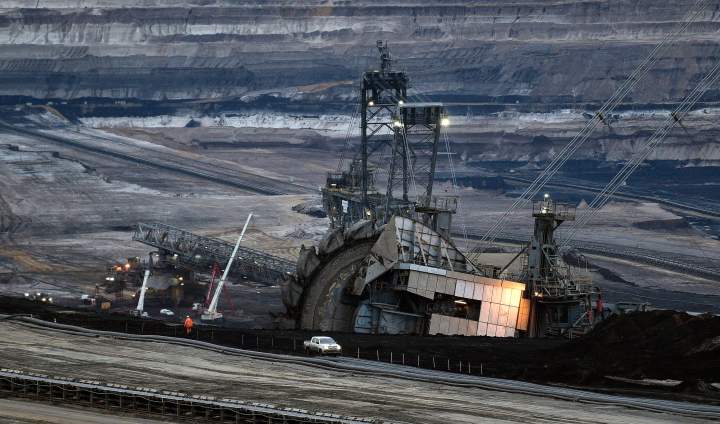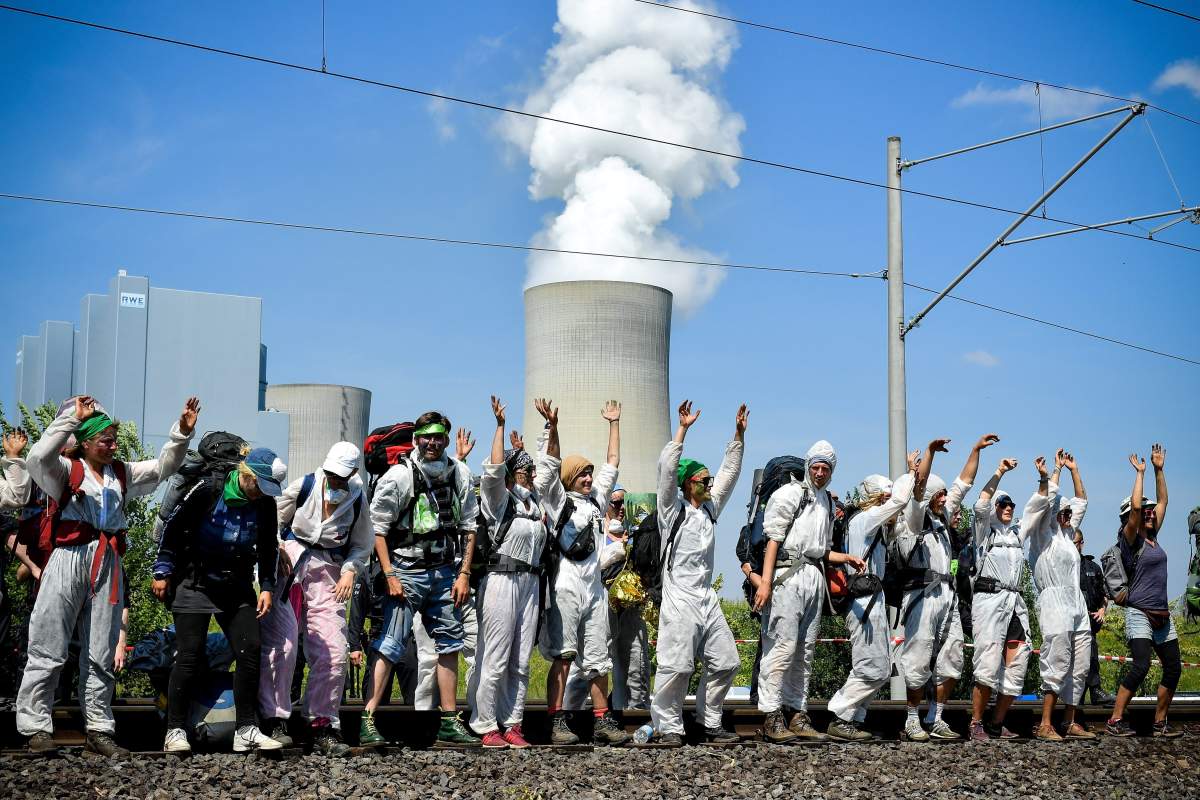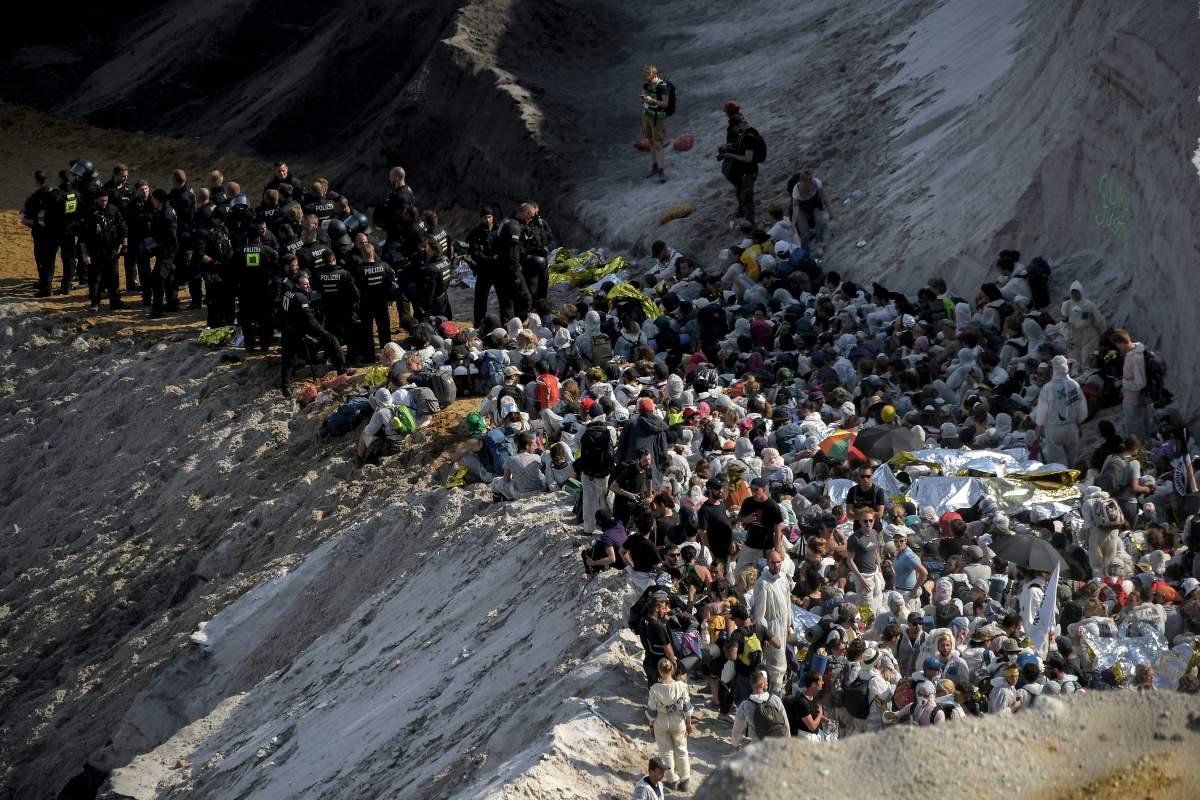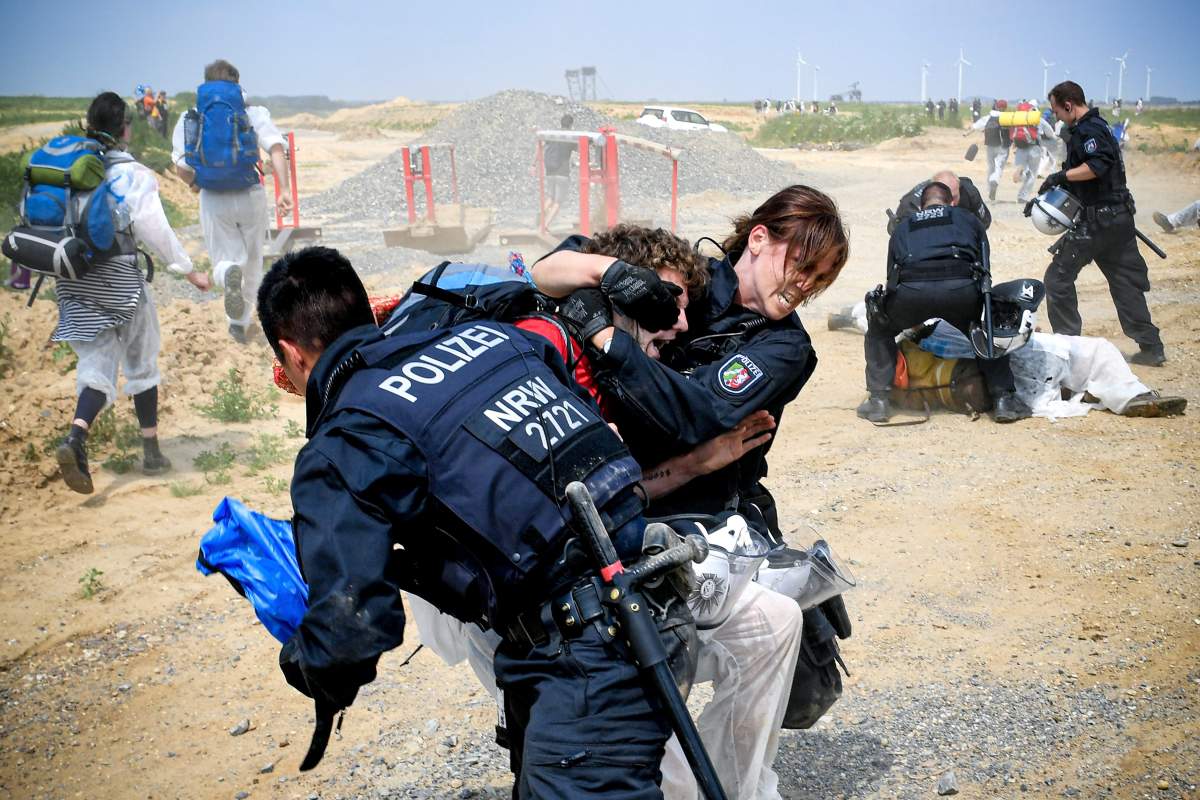An alliance of German villages has vowed not to sell their properties to expand a coal mine Monday, saying any attempt to evict them would be met with a legal challenge.

Formed under the name “Menschenrecht vor Bergrecht” — “Human Rights Before Mining Rights” — the group said in an online statement that they wanted “legal clarity” on whether they could be forcibly evicted.
READ MORE: (Jun. 23, 2019) Hundreds of climate activists end blockade at German coal mine
The expansion of the Garzweiler lignite coal mine in western Germany would affect 12 villages in the area, home to about 7,600 residents. The demolition of the first four villages is scheduled to begin in 2023.
“If RWE is determined to take our land, we are ready for any step they take next,” the alliance said in a statement posted online.
WATCH: (Jun. 21, 2019) Thousands in Germany protest inaction on climate change

“If they want to expand the mine regardless, as planned, they must start a legal process to win our land from us. If the competent authority in Arnsberg decides that we should be evicted from our homes by RWE, we have pledged to take legal action. Then it’s up to the court to decide whether the expropriation would be justifiable and legally permissible.

Get daily National news
This is not the first time Garzweiler and its owner, utility company RWE, has been met by resistance to the mine’s expansion.
The mine and the area around it have been the target of multiple protests ever since RWE announced a plan to cut a nearby forest.
READ MORE: ‘We’re all in big trouble’: UN climate report says oceans rising, ice melting faster
Hundreds of climate activists targeted the mine last June in protest, breaking through a police cordon to enter and blockading railroad tracks used to transport coal.
The protests had started after European Union leaders could not agree on how to make themselves carbon neutral by 2050.
A spokesperson for RWE told The Guardian that three-quarters of villagers had already finished negotiations with their expropriation agreements and that their villages would be rebuilt in new locations.
WATCH: Thousands protest at one of Germany’s largest lignite coal mines

“We take notice of the villagers’ announcement and regret that these steps have to be taken,” said spokesperson Guido Steffen.
“We have a phase-out, not a breakdown of this industry, so we need the coal under these villages.”
Steffen’s “phase-out” was in reference to Germany’s plan to phase out coal by 2038, a plan that the villages hope to capitalize on should a legal challenge be issued.
Global News reached out to RWE but has not heard back by time of publication.
READ MORE: ‘Another world is possible’: Students rally for climate change action in Germany
The land between the village boundary of Keyenberg and the mine was planned to be the first “example” to test the legalities of expropriation, according to the group.
“We are using this land as an example, to ask the courts about the legal questions of expropriation. If RWE does not agree we can keep this piece of land, we will use legal means to defend it. So we will not negotiate the sale of this piece of land with RWE,” the alliance said in a statement.
WATCH: Police crack down on German coal mine protesters

A resident of one of the villages to be demolished, Kuckum villager Marita Dresen, said in a statement that the legal route isn’t the one they would have chosen, but they would have no other option should they be forced out.
“We are a team and we know that we are not just acting for our villages, but taking a stand against coal everywhere — and for the climate,” said Dresen.
“That gives me and my family the determination to stand up to RWE — in a legal forum if needs be — however long it takes.”
— With files from The Associated Press















Comments